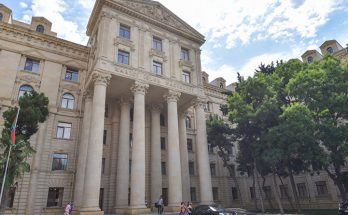
Turkey’s domestic income target of $25,000 can turn out to be a futile dream unless a credible judicial environment is created, Turkey’s Deputy Prime Minister Ali Babacan said on Wednesday Anadolu News Agency reported. Babacan addressed Turkish ambassadors on the third day of their week-long meeting of the 6th annual Turkish Ambassadors’ Conference in Ankara, the Turkish capital.
The most senior voice on economy in Turkey’s ruling AK Party, Babacan emphasized the impact the judicial and educational systems can make on a country’s economy.
Babacan said, “Turkey should create a credible judicial atmosphere in which investors say ‘If I go to a Turkish court, my case will be resolved fastly and justly’.”
“Further on, our judicial and educational systems will either improve our economy or cause setbacks in it,” added Babacan.
Babacan made these statements in a time when Turkish politicians are discussing a proposal from ruling AK Party to restructure the top institution that administers the judiciary. The move came in the aftermath of an anti-graft investigation launched on December 17, which has been described by the government as “a campaign of smear and disinformation” targeting the Turkish government and economy.
The minister also announced that Turkey will establish specialized courts of finance.
“Judges specialized in economy will hear cases related to finance, therefore enabling faster case results,” said Babacan.
– Turkey’s financial priorities on the 2014-2016 medium term program
Babacan said global economy had experienced a tumultuous process since the economic crisis of 2008.
“The crisis made a prolonged impact not only on world economies but also social and political spheres,” said Babacan, stressing that economic crises stemming from finance sector always make stronger impacts.
“Although many countries took rigid measures, they could not succeed in reducing their debt stock,” said Babacan.
Following his remarks on the global effects of the crisis, Babacan touched on Turkey’s position on the face of this recession.
Babacan said Turkey maintained fiscal discipline and single digit inflation rates before the crisis reared its head.
“Turkey took on the crisis with strong public finances and a strong banking sector,” said Babacan, emphasizing the political stability and strong political will experienced in Turkey in that period.
After 2009, said Babacan, Turkey established credible medium term programs, which have been updated every year, and continued its fiscal discipline.
Innovative monetary policies, a new commercial code and measures to slow down credit growth also helped Turkey to overcome the effects of the crisis, Babacan said.
Babacan listed reducing current account deficit, decreasing inflation, maintaining a strong fiscal stance and increasing growth and employment among Turkey’s main priorities on the 2014-2016 medium term program.
“In ten years, Turkey will be the fastest-growing country in the Organisation for Economic Co-operation and Development (OECD),” added Babacan.




